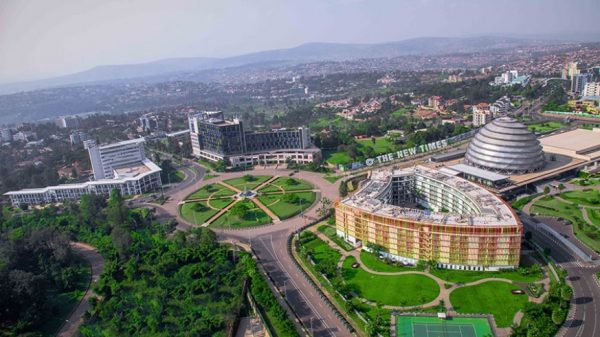After the 1994 genocide against the Tutsi when almost the entire infrastructure was non-functional, the Government of Rwanda embarked on reconstruction and infrastructure development. Among the priorities set was the construction of modern residential and commercial infrastructure.
Growth in demand for low and affordable houses has been driven by many factors, a growing population (2.64 per cent per annum), an emerging and growing middle class, increased Diaspora investment in Rwandan property markets and government investment in infrastructure expansion and modernization of urban and rural infrastructure.
The need for infrastructure and real estate has been attributed to recent remarkable growth in population and foreign investments which imply that there will be continued growing demand for residential as well as commercial infrastructure and buildings.
The most tangible opportunities in the real estate and construction sector is the implementation of the Kigali City Master plan and secondary cities that encompasses a broad vision and guidelines for the entire city serving as the basis for more specific planning at the District’s secondary cities and the Central Business District (CBD). This presents sustainability in land use, infrastructure and economy progress.
Also, the increased development has been attributed to many factors that include: – a number of key materials are manufactured locally, whereas others are imported. The main ones manufactured locally are Cement, metal roofing sheets, hollow sections and profiles, electrical materials, clay and ceramic building materials (bricks, blocks and tiles) which are sold at fair prices. However, the manufacturing capacity of existing companies does not saturate this microeconomic sector; it is instead complemented with imports, hence a need to set up more manufacturing plants that would make construction materials.
With the introduction of the condominiums law both public and private sectors are steadily getting involved into real estate development and construction, Spearheading the sector is the Rwanda Social Security Board (RSSB) which has constructed residential houses and office structures in different parts of the country. Expected to be started are the low and medium-income residential houses in different parts of the country. Several technologies are being considered to provide cost-effective, but efficient modular solutions, which can be replicated at numerous sites in order to solve the problem of low-cost housing in Rwanda.
Many other companies are steadily involved in real estate development by constructing houses and selling them and also by providing both short and long term accommodation and office space. Though there are companies involved in these activities it is on a small scale and most of the infrastructure they develop is scattered and targets high-income earners. This makes them expensive leaving very few for the local market who have low and medium incomes.
The construction sector needs proper conceptual studies and accounting methods as most of them are developed on loans from banks. That’s why they target high-income earners so as to be able to pay back the loans they owe to financial institutions and some of them have ended up being auctioned for failure to pay back. The high financial costs have made commercial building and space expensive for the local community leading to part of the business community do business in other countries thus leaving these buildings half occupied. Also for a startup to get funds to rent these buildings it becomes hard as most of them have limited funds to rent them because of high rental costs.
Despite infrastructure’s visible expansion in most aspects over the recent past, housing remains one of the visibly challenging realities to the city dwellers, currently slightly close to one million continue to face. This is where the challenge lies because many of the developers have put most of the emphasis on building for the premium class which is more profitable.
There has been a slow down in the construction and infrastructure development sector due to the COVID-19 pandemic but it is expected to resume fully as more measures and strategies are being laid to contain and stop the spread of this pandemic.
The housing market in Rwanda is very interesting and has a high business potential but will call for proper land planning and a high level of marketing in order to interest the private sector and set up long-lasting structures. The challenge of ensuring Kigali residents and later on Rwanda in general access affordable but good quality commercial and residential housing, calls for the efforts of both the public and private sectors but the former ought to invest more efforts.
Culled from Newtimes

